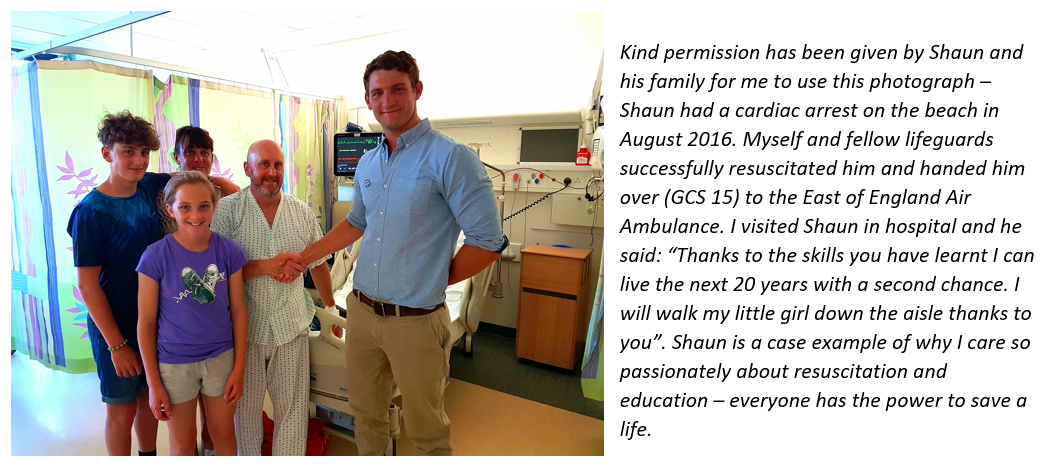Well done to Rob on being a runner-up in the ‘Zeshan Qureshi Award for Outstanding Achievement in Medical Education’.
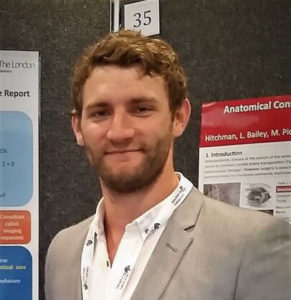
Rob Willmore is a 5th year Medical Student at the University of Bristol. After a shocking experience in his first year at medical school he realised a need to teach medical students some vital first aid skills. Facing setbacks and resistance from the university, he fought for a change and established his own first-aid society, training fellow students in life-saving skills. Not only has he now successfully achieved a change in the Bristol university curriculum to include BLS and first aid training, but he is on the road to making an international impact through his research indicating the dire need for change.
From a shocking incident….
My interest in education was sparked following an incident during my first year of university. It was a warm October morning and the bus was full of students travelling in for 9am lectures when suddenly someone collapsed. I distinctly remember shouts for the bus driver to stop and if there were any medical students on board. My fellow first year medics looked at me aghast in the realisation they didn’t have a clue what to do.
“It dawned on me that there was an undoubtable expectation that medical students knew First-Aid, but as I went on to discover this was not the case at all.”
….To a highly successful society.
I identified a gap in the undergraduate curriculum in the provision of basic First-Aid skills – despite flagging this to curriculum organisers nothing was done to rectify it so I took matters into my own hands. Having worked for the RNLI for many years I had extensive training and experience in First-Aid from cuts and bruises to managing out-of-hospital cardiac arrests. Using this experience, I founded B-FAST (Bristol First-Aid Society) with the intention of training medics in First-Aid by utilising students with prior experience in the field.
“I wrote the syllabus, lesson plans and ran “Train-the-Trainer” sessions to ensure Trainers were up to speed with current guidelines and comfortable teaching them.”
B-FAST offered trainers an opportunity to refresh their skills and the beneficial experience of teaching their peers.
Fortnightly sessions aimed for a high trainer to student ratio of 1:6. Lesson plans took on a “revision→theory→practical→scenario” structure with a core emphasis being placed on confidence in the practical skills taught. We worked around students who couldn’t make timetabled sessions at the weekend by offering ‘catch-up’ sessions mid-week.
I wished to reward students for commitment to sessions (attended in free-time) so I self-funded a ‘First-Aid Trainer Assessor’ course and additionally completed my GIC (Generic Instructor Course). Completion of these courses equipped me with skills to design and run assessment days to officially certify students with Emergency First-Aid at Work (EFAW) certificates which they could utilise for summer jobs and add to their CV.
“To date B-FAST has recruited over 60 trainers, certified dozens of students in Emergency First-Aid at Work, and has over 500 members: all equipped with the skills to save a life.”
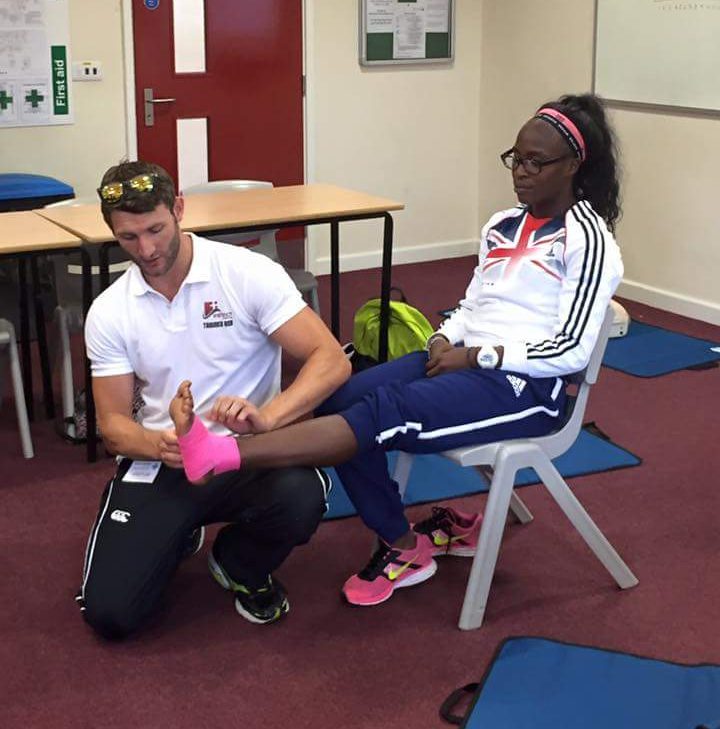
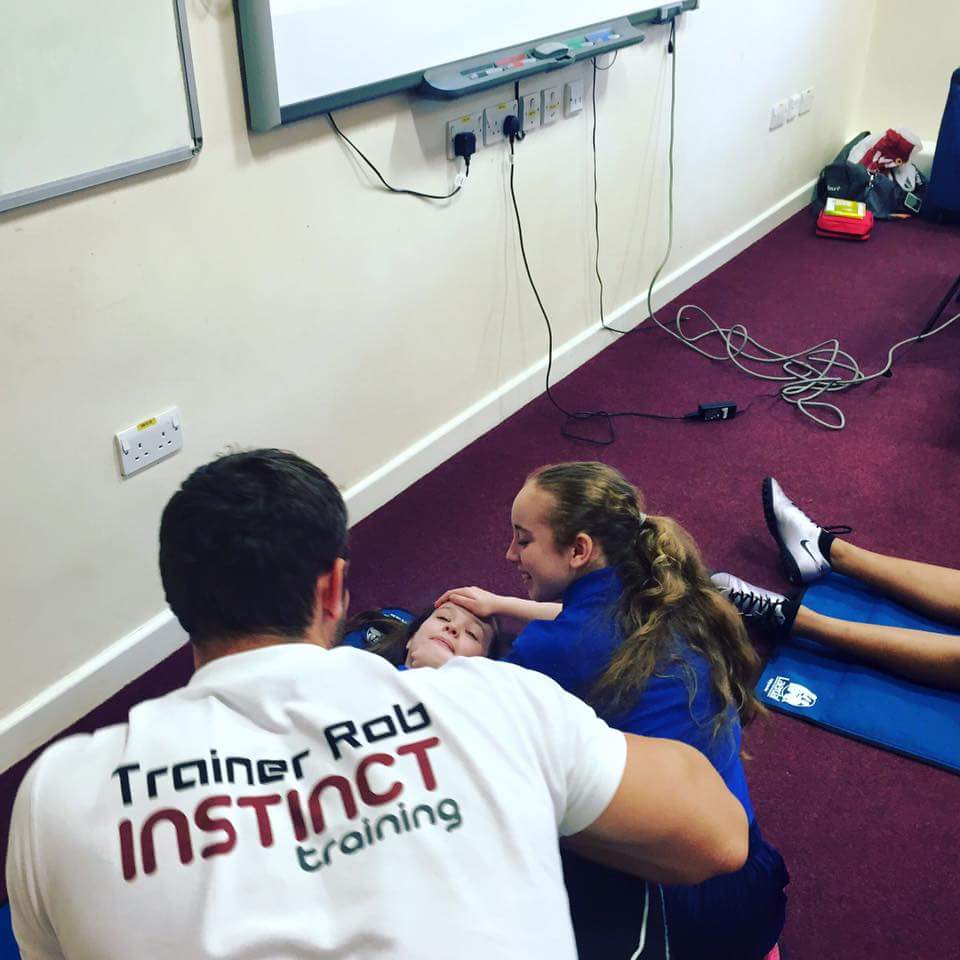
From fighting setbacks and lack of university support…
Despite its popularity B-FAST was missing a number of Bristol Medical Students who either had weekend commitments or were not interested in First-Aid, despite it being a GMC requirement. I approached the medical school with the problem and was once again cited reasons like lack of curriculum time or cost so the idea was quashed. To tackle this disappointment, I created a First-Aid Conference including pre-course reading and eTutorials; a detailed timetable of a conference-style day with required resources and sponsorship packages; and ensuing post-conference eTutorial assessments.
“It once again built upon peer-teaching concepts allowing senior medics to refresh their knowledge by educating juniors whist concurrently gaining teaching skills – this model had numerous benefits and was extremely cheap to run.”
Despite winning a University award for the project and despite the package being “ready to go” there was still no sign of the faculty including it into the curriculum.
….To developing a national study…
I realised my anecdotal evidence of student’s lack of knowledge of First-Aid (and more shockingly CPR/BLS) was not going to persuade the University – I needed a higher quality of evidence.
“In 2015/16 I designed, gained ethical approval for and delivered a national study investigating the BLS knowledge of UK Medical Students in my free time.”
How does one sample every 1st and 4th year medical student in the UK with a paper questionnaire?! I utilised students from the various institutions included in the research. Following advertisement in local Medical Student circulars I recruited researchers from each university who were chosen on a first-come-first-serve basis – this was the fairest method to select students as I received short of 1000 emails of interest.
With the help from student researchers I gathered over 4000 responses. Data analysis produced important results: 86% of 1st year medical students could not correctly answer 5 multiple-choice-questions (MCQ’s) on BLS compared with 84% of 4th year students. Furthermore students wanted more BLS training in the curriculum and believed there was an expectation that medics should be able to perform CPR. The project’s success reflected the large amount of interest it attracted when I presented it at the European Resuscitation Council Conference in Iceland earlier this year and I hope to further develop the research by running it in a number of European countries.
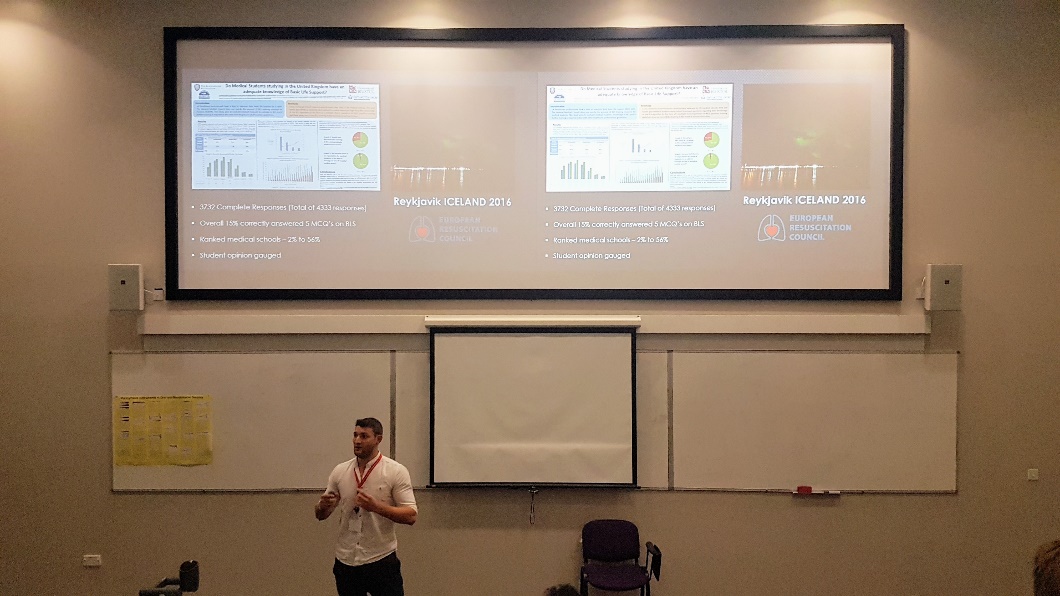
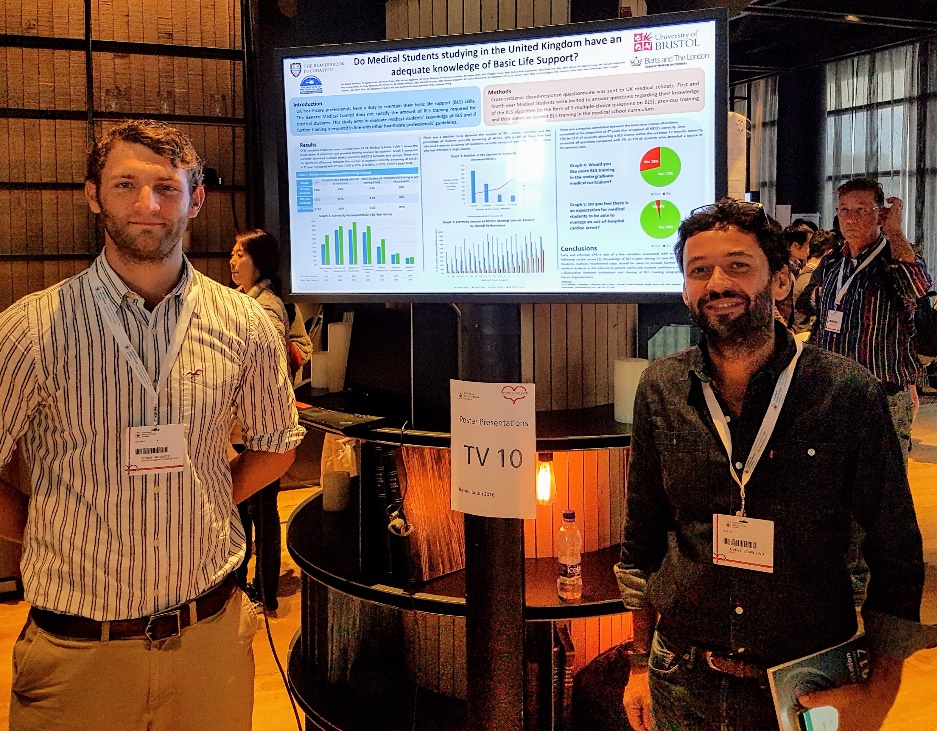
…And finally to huge success.
“The ability to perform CPR to save a life should not be a tick-box exercise documented in an exam prior to graduation – it is a gift I believe should be taught to everyone.”
How can we expect children to learn such basic skills if tomorrow’s Doctors do not have an adequate grasp of them too?
Finally, I am happy to announce after 5 years of graft and dogged tenacity, that from 2017 onwards Bristol Medical School is delivering a peer led BLS/First-Aid programme to every first year medical student – if just one of these students goes on to save a person’s life then my hard work has been worth it.
